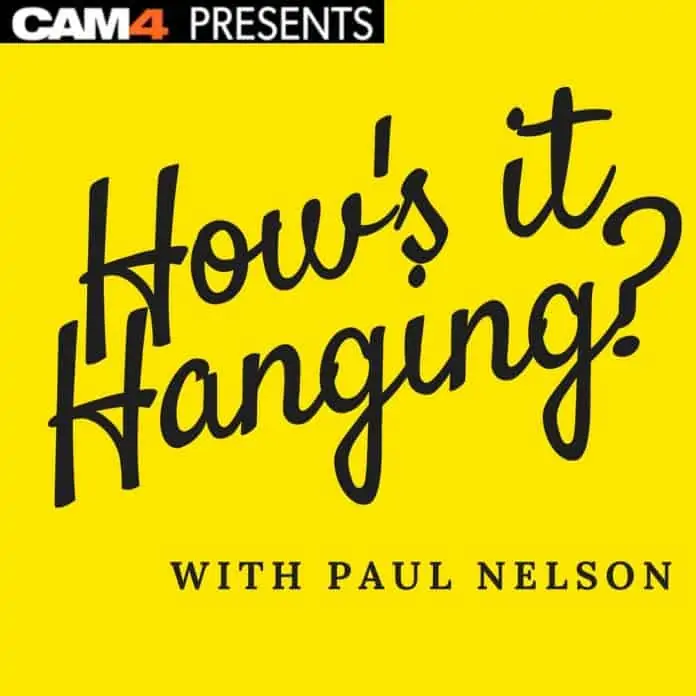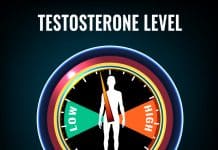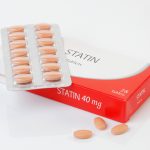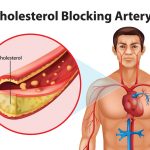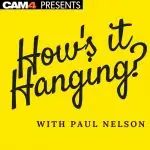Transcript from the “How is it Hanging” podcast by Paul Nelson.
Paul Nelson: This podcast is meant to start important conversations about medical health. In no way is this to replace a face-to-face discussion with your healthcare professional.
Paul Nelson: Hello, and welcome to How’s it Hanging? I am your host, Paul Nelson. We’re recording here in the heart of Midtown Manhattan. I’m sitting here on a beautiful sunny day with our wonderful producer, Shannon. Having a great time here.
Paul Nelson: Listen, we have a question now from Ben, age 36. This is really common guys, especially you guys at the gym, I want you to listen to this. Ben writes, “My wife and I have been trying to get pregnant for a while now. I just found out that the testosterone I was using to help me in the gym has killed my sperm production. What can I do? Did I just ruin my chance to be a father?” Ben, one of the things that nobody seems to know or tell, I don’t know how this happens, but yes, if you take testosterone in any form, it means your body no longer produces it. That means that essentially your testes, they shut down. So if you are taking testosterone cream or supplements, your balls stop working, and that means no more sperm. Now, I need you to go to a specialist, a reproductive endocrinologist, or someone who’s working in men’s fertility, and you can, we hope, get things back on track.
Paul Nelson: First of all, we have you taper off the testosterone and they start giving you a drug called Clomid. This is an interesting drug. It measures estrogen in your blood to tell your pituitary to start telling your balls to make more sperm. The good news is, we can usually get your sperm counts up so that you can become a father. The bad news is, you are going to feel not quite as good on the Clomid as you did on testosterone.
Paul Nelson: Here is what I would like you to think about. If it works, I don’t know you or your goals or anything, but let’s say you really, really, really need to be on testosterone so you can feel good, and be healthy, and all those other things, what I would recommend talking to your doctor about, again, this is with your doctors consent and permission and involvement, you’re on the Clomid. We get your sperm counts up. Everything’s good. I want you to bank your sperm, bank more sperm, a year supply, more than you’ll ever dream of needing. Then you can go back on testosterone, and it doesn’t matter what your sperm counts are because you got a whole bank full of sperm waiting to make you babies.
Paul Nelson: This is a bit of a surprise for couples. This can be shocking. It can be disappointing. There can be a lot of blame. There can be a lot of shame. It can be a lot of, “I should have known better.” This is why we tell guys, “Don’t screw around with testosterone on your own.” It needs to be done with a doctor. Don’t go to GNC. Don’t go to China. Don’t go to India. I can’t say that enough. But the good news is, there is hope.
Paul Nelson: Now on this episode, we have one of the world’s experts on testosterone. That is not at all an exaggeration. His name is Nelson Vergel. He’s at discountedlabs.com, because he has made it his life’s mission to help men who are struggling with low testosterone. He has done an amazing job of taking all the medical information and putting it in layman’s terms. He is a wonderful personality, a warm human being and somebody that you would just really want to listen to. Welcome, Nelson. Let’s figure this out, and Nelson just before I let you say anything, I remember I emailed you in 2010.
Nelson Vergel: Yeah.
Paul Nelson: You were nice enough to send me your book on testosterone.
Nelson Vergel: Well, I was a fan of yours, too, because your site was there already.
Paul Nelson: Right. I had just started Frank Talk. You’re right. I had just started Frank Talk and I needed help, and information, and resources, and you were so kind to this goofy guy just starting out, so I’ve been a fan of yours ever since. Our guest is Nelson Vergel, a renowned expert in a whole lot of areas, but I’m going to let you talk about yourself. To introduce, tell us who you are, and why I’m in awe of you. How’s that?
Nelson Vergel: No. Knowing you, you will say, “Who is this guy writing about implants, what are these penile implants.”? Wow, this is edgy stuff, and I loved it. You also have a lot of great info on ED. I was already following you. I was writing my book and doing my other stuff, so I learned a lot from your work. I’m more than honored to be here with you. You broke ground before this topic was even a hot topic. Well, me, I’m obviously from the accent you hear, I’m from Venezuela, South America, been here forever, like 30-some years.
Nelson Vergel: Really, I’m a chemical engineer that left my career with oil and gas in the early ’90s, because I was dealing with something very horrific called HIV, and I thought I really didn’t have much time to live, so started to work with wasting. I was losing lean body mass, weight and wasting away, like they say, and found out that hormones, testosterone in particular, and nandrolone, which is another FDA-approved hormone product, really was able to reverse the wasting syndrome in people with HIV. That would buy us time, because wasting was killing us before anything else was, and that was back in the dark days of education.
Nelson Vergel: Yeah, I became obsessed with this. I put on 35 pounds after losing most of it before, and looking good again, and living again. I was able to extend my life to the day that the new medications came in and became, basically, a preacher of a program. I called it Program for Wellness Restoration. I created a nonprofit called PoWeRUSA, powerusa.org, to basically teach doctors how to prescribe these hormones for people with HIV that needed them to survive. That’s how I started with all this work back in the early ’90s, wrote a book called, Built to Survive, which describes the program for HIV. Then things got better with HIV, obviously, thank God, I’m here. I’m 61. I’m 37 years into this disease.
Nelson Vergel: I started getting emails from non-HIV, straight males and women, too, saying, “Hey, Nelson, I’m not HIV-positive, but do I have to be HIV-positive for you to help me out?” Wow. Wait. No, no, no, you definitely don’t have to. I started thinking, “Wait a minute, people are really requesting information from the non-chronic illness world.” That’s how I started working in men’s health. I wrote a book called, Testosterone, I mean, it’s a guide, and found that ExcelMale.com, which is a forum where men and some women go in to ask questions about testosterone, exercise, nutrition, supplements, peptides, HCG, erectile dysfunction, and much more. I send people to your site for penile implants, for sure, because that’s a topic that I really don’t cover. You’re the expert of that.
Nelson Vergel: Now I have a company called DiscountedLabs.com. I provide the lowest cost lab tests that you can buy yourself without a doctor’s visit anywhere in the United States, and starting other networks, creating an international directory of hormone clinics that treat men and women.
Paul Nelson: No, that’s right. There are only about 14 different discussions we can have about everything you just said. A question, the discounted labs, so if I’m a guy on the street, and I’m like, “I want to find out if my testosterone is where it should be,” I go to you? What do I do?
Nelson Vergel: DiscountedLabs.com, create a profile there, find out what the closest lab location is to you, which, there’re over 2000 locations, and order it. It’s under $50 to find out what your testosterone blood level is.
Paul Nelson: I don’t need a prescription? No prescription?
Nelson Vergel: No, no, no. We provide the doctor’s prescription, so you don’t have to go see a doctor, so you save the doctor’s visit. You go, and we basically email you the results a few days later, and you can tell whether or not you have low testosterone before you go see a doctor. Some people email me and say, “Nelson, my results came out low. Where do I go?” I do have a network of physicians that I refer people to.
Paul Nelson: Okay. That’s fascinating, right. If I’m right, the family doctor doesn’t have much training about testosterone treatments, does he?
Nelson Vergel: The only training they get is from pharmaceutical reps.
Paul Nelson: Right. Your family doctor, who’s the first line of defense in dealing with this, really doesn’t know much more than the average person, other than-
Nelson Vergel: Don’t blame him, though. It’s not their fault. I mean, they’re busy people, but also medical school back in the day… so now it’s different, now it’s getting better… they used to say, “Don’t give anybody testosterone, hormones, because of cancer, prostate cancer.” But now, obviously, we have good data that shows no-
Paul Nelson: Exactly.
Nelson Vergel: … it was a myth, and also the cardiovascular risk is a myth. Now I see more and more medical schools teaching it. But no, most of these doctors, and I don’t blame them, because this was not part of their education. The only education they’re getting is from maybe an AndroGel rep or a Testim rep. There are 12 pharma-brand products, mostly gels and creams. The injectables are generic, so there’s not a pharmaceutical rep walking in if we’re injectable. A lot of this information has evolved, but yet that’s why I just published, I indeed mentioned that, a free book for doctors and patients, Beyond Testosterone, that you can actually download for free on beyondtestosterone.com. It’s over 300 pages. I say, “Screw it. I just want to give this out, man.”
Nelson Vergel: There’s so much misinformation out there. I mean, it took me two years to read all these papers. I’m putting them in graphic format. Hopefully, I can make a little bit of a difference, cause there’s so much suffering out there. I get guys on my site, saying they’ve been struggling for five years, and their testosterone is 350, and their insurance company doesn’t want to pay, because it’s borderline. I mean, there’s so much suffering. We can talk about that. I mean, obviously, I can talk about this forever, but-
Paul Nelson: Right. I just want to repeat that beyondtestosterone.com is where anyone can go to download your free testosterone book. I’ve downloaded it. It’s really cool. It’s highly graphic. What should I say? Mostly graphics. It’s very accurate. I’m really impressed, really accurate medical data. You mentioned, quickly, I just want to repeat the idea, not long ago, just a couple of years ago, and there are still doctors who believe testosterone treatment replacement therapy will cause heart attacks, cardiovascular problems. They think it will cause prostate cancer. There was all this bad data. There was no medical science. It was just mistaken beliefs. We now have the data that testosterone improves heart health. It improves vascular function. In fact, if your testosterone is low, you are at more risk for cancer, heart disease, diabetes, obesity, all these, high cholesterol, all these life-threatening conditions.
Nelson Vergel: Yeah. I may get prostate cancer, usually in old age, when their testosterone is low.
Paul Nelson: When their testosterone is low, they’re a higher risk for prostate cancer. For years, it was the opposite. We were being told the opposite.
Nelson Vergel: Now they’re using on some guys, depending on their cancer, high doses of testosterone to treat their cancer. Bipolar treatment, it’s called now. That’s a new thing that has come in the past three years. It’s completely debunking all those fears and myths.
Paul Nelson: For years. Yeah. I want to tell anyone who’s listening. There are still doctors out there going under misguided old information, correct?
Nelson Vergel: Many doctors, yeah. They don’t go to urology conferences. You always hear, in the urology conference, you know what I’m talking about? Urology conferences now have one or two days devoted to testosterone. Urologists really onboard now. Endocrinologists are falling behind, and they must be treating diabetes and all that. Most people think endocrinology, which is hormone doctors, really are the experts on testosterone replacement or even HRT, but, no, it is the urologist,
Paul Nelson: It’s the urologist, right. If you want to go to a doctor, go to an urologist, go armed with your labs that you guys have done at Discounted Labs.
Paul Nelson: Let’s go over some of the sexual symptoms of low testosterone or borderline, just suboptimal. I like the word, suboptimal, because you may be at a number that’s perfectly good for someone else, but for you, your number should be 800, not 400, or not 300. Right?
Nelson Vergel: Yeah. We talk a lot about testosterone, and sex, or libido, or eating, but really I want to talk about testosterone and coping. Coping, meaning how you deal with stress, how you deal. The first thing that, really the most benefit that you get from testosterone, obviously, more sex drive. There’s good data on that. When it comes to erectile function or dysfunction, there is contradictory data. It seems like the younger guys that have low testosterone get the most benefits when it comes to erectile function. Older men, with a lot of what we call comorbidities, high blood pressure that is, tend to be more complicated. Given testosterone, they may not see the benefits, all the erectile function, but yes, erectile function, fatigue.
Nelson Vergel: The way we handle stress, that’s the first thing I hear from guys like, “Wow, I didn’t know that things, I was overwhelmed easily by, at work or with my relationship, and now, I’m like bringing it home, man. Bring it on.” That’s really, and I tell people, we talk a lot of testosterone and sex and all that, but really it is testosterone and cope, coping with stress, dealing with all the day-to-day stuff. That makes you not only happier, it makes you actually hornier, too. You perform better in bed when you’re in control of your life. It’s not only a sexual thing, it is really coping.
Nelson Vergel: I know I sound like I’m a broken record, because it made a difference for me. I mean, when I had low testosterone, back in the horrible days, I couldn’t even process information. I couldn’t talk to my doctor. I couldn’t advocate for myself. I was like a doormat. Eventually, obviously, people see the difference, and sometimes that can cause problems. If you’re with somebody that is used for you to be a doormat, and now you’re not, that’s when it get… I get emails about that. How do I deal now with how I-
Paul Nelson: I had one patient who put it this way. He said, “Low testosterone, I lost my warrior mojo.”
Nelson Vergel: There you go. Perfect.
Paul Nelson: I thought that was really good. He wasn’t ready to fight in business at work, even the lawnmower. He wasn’t ready to do battle in any part of his life. This idea of “I feel virile, I feel strong, I feel capable,” I feel, that was all gone.
Nelson Vergel: Well, you also feel more assertive. You want to initiate sex and actually be the best stud you can be in bed when you’re with your partner. It really has a connection. It cannot only be explained by the effect of the hormone on the receptors, on the androgen receptors, and on libido itself, but there’s more and more beyond that. Nobody has really studied that side of testosterone. But as I say, obviously, when you have low testosterone, it’s basically you can lose lean body mass, increase fat, less cognitive capacity. Obviously, you probably don’t even sleep as well. You wake up a lot in the middle of the night. You, as I said, just malaise. You feel like you’re older than you really are, body aches, all the other stuff.
Nelson Vergel: There’s probably 30 different symptoms, but most people talk about sex drive, erectile function, and that’s about it, when in fact, we have a lot. Like you said, you have low testosterone, you have a higher risk of cardiovascular disease, higher risk of cancers. I mean, on and on. People with diabetes, if you have high blood sugar, if you’re overweight, we’re sitting on our butts most of the time. Now a lot of us are working with computers and office-based, so we’re not getting enough sun. We’re really walking away from our natural state. We’re paying the price. We’re being exposed to plastics and toxins in the environment. We’re really are, and our foods are very highly processed. Really the new man, and there’s data already showing that our fertility rates are going down, the sperm quality is going down. That’s why it’s becoming a subject now.
Nelson Vergel: We are really, in the United States, we are lucky. We are advanced. I know people keep trashing our medical system. Obviously, we have a lot of issues with insurance and costs of medical care, what we have here, we have a parallel system where there is a cash-basis system and an insurance system. And people say, “Well, my insurance will not pay for my treatment, even though I have symptoms.” It’s also maybe 350 or 375, some insurance consider that anything above 320, 340 or even 280 in some cases, is grounds for treatment. If you’re under that, even if you have all the symptoms, it’s not. I tell people, I say, “Well, let go of that.” The cash system, which many clinics are cash-based, we have compounding pharmacies where you can get products at a 10th of the cost of pharmaceutical products.
Nelson Vergel: There is another way to get treatment that may not be as frustrating. Yes, if your insurance pays, so your doctor prescribes, more power to you. But do not get frustrated by the fact you have no access to treatment because of a single number that your insurance may deem that doesn’t qualify you. The only problem I’ve seen with insurance companies is that they are making deals with different companies. They may cover AndroGel, but they don’t want to Testim. They don’t want to cover the injections. They just have deals going, pricing deals, so that you are only stuck with one option. There really are about 18 options out for testosterone treatment.
Paul Nelson: Wow. Okay. A quick question. Do you have a way, a question that you help guys figure out the libido? For example, I’ll ask a guy, I said, “If I’m talking to a 40-year-old man or a 35-year-old, man, I’ll say, “Remember, you were 18, your sex drive, your curiosity, interest in sex. If it was a 10 back then, what would it be now?” It’s like when they can compare. But do you have any better way of saying to a guy, “Tell me about your libido”?
Nelson Vergel: I would never say that because we’re never, ever going to be a teen again, never.
Paul Nelson: No. I won’t get back to 18, but if you’re a two, compared to 10?
Nelson Vergel: Maybe in ten years with good stem cells, who knows? I mean, we may be lucky to be alive, because I do believe that’s coming. There’s actually stem cell treatments for generating [inaudible 00:19:50] cells and all that. I tell people, “Remember when you used to be the best you were?” I mean, that’s sometime in our 20s, sometimes in our 30s, too, years with you where you have your self-confidence, your sex drive. The first thing I do, I do ask, because that’s a personal question. I do coach. I coach some guys on the phone sometimes I will. But I ask them, “When you get up in the middle of the night to pee, sometimes at 4:00 or 5:00 AM, do you have an erection? Do you wake up with an erection?” If they say, “No,” you know there’s a problem there. That is the most important erection to have.
Paul Nelson: Right.
Nelson Vergel: Not the erection that you have with your partner, because there may be psychological symptoms there, or you’re not really attracted, or whatever it is psychological, but the non-psychological erections, the erection that has nothing to do with your mind, is the most important. Because the body, really, in the middle of the night is flushing your penile tissue. That’s tissue that is hanging there all day, basically kind of soft and not really being fully flushed, there’s no blood flow, as much. In the middle of the night, we have a burst of testosterone, a burst of growth hormone, a burst after melatonin increases. Melatonin is, basically, the hormone that we get, makes us feel sleepy when the actually sun comes down, melatonin goes up after. After that melatonin rush, we start having those rushes of testosterone form.
Nelson Vergel: It really all coincides around 5:00, 6:00 in the morning. Most of us are getting up to either pee or getting ready to. When you are not waking up, no matter how old you are… you’re in your seventies, maybe it’s different… but you should have at least a hard or semi-hard erection at that time. If you’re not, your plumbing is suffering. Something is just not right.
Paul Nelson: Something’s wrong.
Nelson Vergel: That’s the first thing that people see when they get their testosterone to the normal upper range. That is relative, by the way, what’s normal and optimum for me may not be for you. I used to be drawn a little high, like 700, 800 nanograms per deciliter. You don’t want to run testosterone way too high, because obviously, there are side effects like increased rate of cells and viscosity of the blood. That definitely is a cardiovascular related-risk. Blood pressure increases, water retention, so you want to be in an optimum range that you feel good and yet you’re not having all those side effects. Obviously, there’s a lot more of that in my book.
Nelson Vergel: I’m digressing, but really the first question, the main question is, are you seeing, are you feeling like you have an erection? It doesn’t have to be all the way, 100%, when you get up first thing in the morning, when you get up to pee early in the morning. If they say, “No,” that really my main-
Paul Nelson: That would be a first physical and early physical symptom of low testosterone, possibly?
Nelson Vergel: Yes, yes. For sure.
Paul Nelson: That’s interesting. Nocturnal erections and morning wood, if those have disappeared, something’s going on.
Nelson Vergel: Yeah. Some people say, “I have morning wood, but I cannot get a full erection with my wife, my girlfriend.” Says, “Okay, now we can talk about something else here.”
Paul Nelson: We know that you can get an erection. It’s just that situation, you can’t. That’s fascinating.
Nelson Vergel: Women, society, there’s so many factors. Some people think it’s all about testosterone. No. We also have to have proper thyroid levels, as they work all together. It’s an orchestra. People think the main factor here is testosterone. They obsess. Now their biggest obsession in the past few years, I think, estradiol. We’re not going to get into that, because that will take us probably two hours. I’m faced with getting more and more data that estrogen is good for men. Obviously, we don’t want to have too much estrogen. We have estrogen for a good reason, like women have testosterone for a-
Paul Nelson: Testosterone for a good reason. Yes. There’s a women’s practice conducted with Maze Health where I work, and we often have to give women testosterone because their libido is gone. Women, yes, need to have testosterone levels as well. And yes, men need estrogen levels. Absolutely.
Paul Nelson: Listen, Nelson, I could talk to you all day about that. You’re fascinating. You are an absolute font of information.
Nelson Vergel: Thank you.
Paul Nelson: If guys go to beyondtestosterone.com, they can get your book, and they can download it for free. Do people contact you directly? Do you do coaching?
Nelson Vergel: Well, everything is in that book. It’s 300 and some pages for a good reason, because I provide every resource possible. I provide information on how to get, where to get it, how to get tested, where to get the syringes, where to get, I mean, suppliers. I literally, I put my heart and soul on this book, and I decided not to make money on this book, because I don’t know, man. Maybe I still have those days from HIV where I think I’m going to die and I want to leave something behind. But I really think… and I’m not promoting it too heavily, because obviously I’ve only had like 3000 downloads, I was expecting more in the last two months… but really everything is there. Not only that, I have live links, which that’s why I haven’t made it a real book on Amazon, because I want people to be able to click on the links that I show them where to get stuff, new resources.
Paul Nelson: Perfect. Perfect. Perfect. So basically, any question we can come up with, with testosterone, you’ve probably answered it in your book, which we can get for free.
Nelson Vergel: There are 11 years of information.
Paul Nelson: Wow.
Nelson Vergel: Obviously, I wrote my last book 10, 11 years ago. Instead of writing a book, I said, “Well, I could write an update,” but actually, you have to definitely read this book while you’re on your phone, the phone is kind of hard because it’s a lot of graphics, on a desktop because that way you see, you click on different links. I have over 400 links on suppliers, clinics, reviews of performance. I made it really for somebody that is on their desktop. I did all the research. I really am hoping for comments. I mean-
Paul Nelson: No, this is-
Nelson Vergel: … maybe I missed something, but I don’t think I have missed anything. I actually, probably, have too much information, but at least I show it in a graphic format so that if anybody is struggling, because there’s so much information out there, so much misinformation. You can click Google, testosterone treatment, oh my god, crazy stuff out there, and people really taking advantage of people. I warn people. This is me again, as an activist, there are many clinics out there that should not be in business. I’m not going to mention any, I’m not here to do that, but there’s a lot of abuse in this. There’s a lot of snake oil sales. People are buying testosterone boosters. They don’t work. They’re spending big bucks. Amazon has like a thousand testosterone boosters, and all of them have five stars, the reviews.
Paul Nelson: They just don’t work. Listen, I mean, I need to let you go, because you’ve given us so much time and so much information, but I can’t thank you enough. Your book is a huge resource, and I’m sure it’s going to start exploding you with downloads, because this is such important information. It’s BeyondTestosterone.com, where you can get his free book. If you have any questions you can email us at how’[email protected]. Nelson, I can’t thank you enough for being with us today.
Nelson Vergel: Thank you, Paul. I’m a big, big fan of yours.
Paul Nelson: We’ve got a mutual admiration society going here. Listen-
Nelson Vergel: All right.
Paul Nelson: … thank you so much. Take care.


